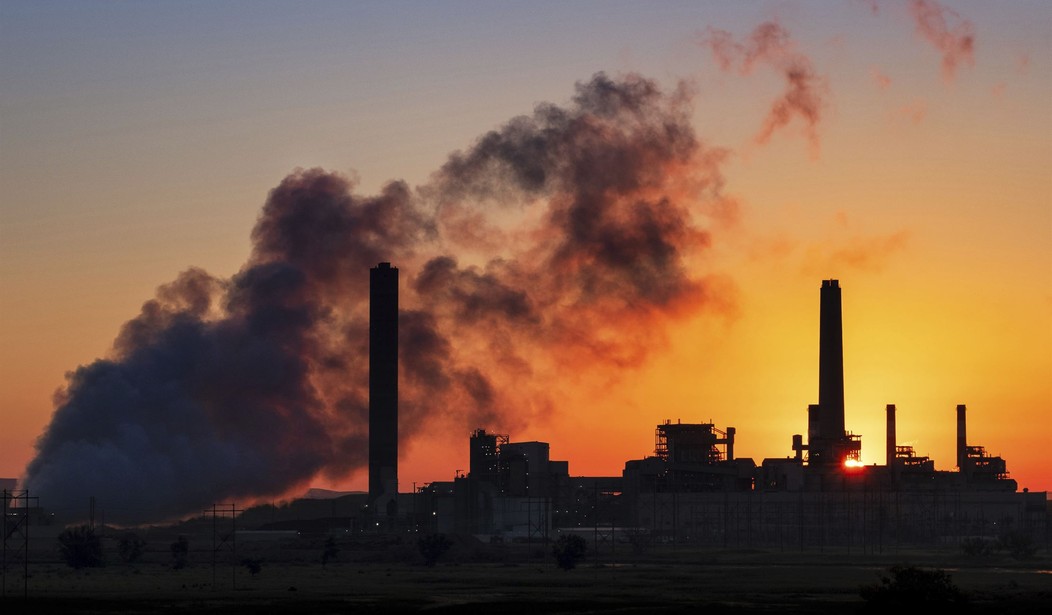April 22 marks the beginning of the modern environmental movement in 1970. On that first Earth Day, several million Americans took to the streets to participate in “mostly peaceful” demonstrations demanding that the federal government dramatically increase its regulation of the environment. The government happily responded to the demands of environmentalists by creating the Environmental Protection Agency and granting it sweeping powers to regulate the activities of Americans.
Each year, Earth Day is the occasion for a wide range of events, each designed by the organizers to raise what they refer to as “environmental consciousness,” and all with a stated central theme. This year’s theme stresses the need to “Invest In Our Planet.” Much attention will surely be paid to celebrating the investments in wind farms, solar facilities, battery plants and the like that have been made possible by the trillions in subsidies and tax credits packed into the hilariously misnamed Inflation Reduction Act and other green pork delivery systems.
If April 22 is a day to focus on and celebrate investments that truly benefit the environment, we should not waste time on the subsidy-dependent unreliable technologies favored by environmentalist investors. We should instead focus on and celebrate the immeasurable contributions to environmental quality that have been made, and continue to be made, by the market-proven, time-tested technologies based on fossil fuels.
We should never forget what life was like before the age of fossil fuels and the technologies they made possible. The scope of economic activity was severely limited, defined by the productive work that man and animal could perform. And the work they could perform was largely confined to daylight hours and to warm weather in growing seasons. Unreliable wind-driven grain mills and sailing ships were only functional when the weather cooperated.
Recommended
Homes were poorly lit with candles, or with the expensive oil supplied by the relentless slaughter of whales across the world. Rooms were smoky and odorous, warmed by fires built with dung chips or with wood supplied by widespread deforestation. Streets and lanes were fouled with streams of noxious animal waste. Animal-dependent transportation was slow and arduous. Very few people ever had the means to travel much beyond the place of their birth.
The advent of coal, oil, and natural gas changed everything. Fossil-fueled machines ignited the industrial revolution and brought about an explosion of economic activity and innovation. Electricity supplied on a continuous basis by fossil-fueled generators cleaned the air in our homes and gave us control over our workday.
Economic incentives to harvest whales for lighting, and to strip forests for heating, were eliminated. Steam locomotives and internal combustion vehicles made us mobile and allowed us to clean up our streets and roadways. Our health improved. Our living standards soared.
The combustion of fossil fuels does result in the emission of certain pollutants, but those emissions are easily controlled and have been reduced to amounts that are vanishingly small and harmless to human health and the environment.
Now, the environmentalists and their political allies want to throw all this away. They strive to conceal their self-interested pursuit of green pork and political power by advancing a relentless campaign of disinformation about the supposedly existential threat posed by carbon dioxide, the gas we exhale with every breath, the gas that is essential to the maintenance of all plant life on earth. They strive to distract us and intimidate us while they work to advance an agenda that turns the technological clock back, harms the environment, and threatens our future.
Wind turbines and solar panels are, of course, weather dependent. So, we are told that we must prepare to adjust our activities that depend on electricity so that they conform better to daylight hours and favorable weather. Back to the future!
Each wind turbine array or solar panel array locks up magnitudes more land, typically farmland, than is required for a fossil-fueled electric generator of the same capacity. An offshore wind turbine array endangers whales, limits the maneuverability of naval and commercial vessels, and requires nine times the minerals needed for a fossil-fueled electric generator of the same capacity. Most of those minerals are mined in foreign lands with devastating environmental and social consequences. And much of that mining is done or controlled by entities under the direction of the Communist Party of China.
Earth Day is, indeed, a good time to celebrate the progress that we have made to protect the environment, and to recommit ourselves to preserving that progress. For that reason, it’s a good day to give thanks for fossil fuels, and to recommit ourselves to preserving their vital role in our economy and society.
J. Kennerly Davis is a former attorney and corporate executive with over forty years of experience in the electric and gas industry.

























Join the conversation as a VIP Member